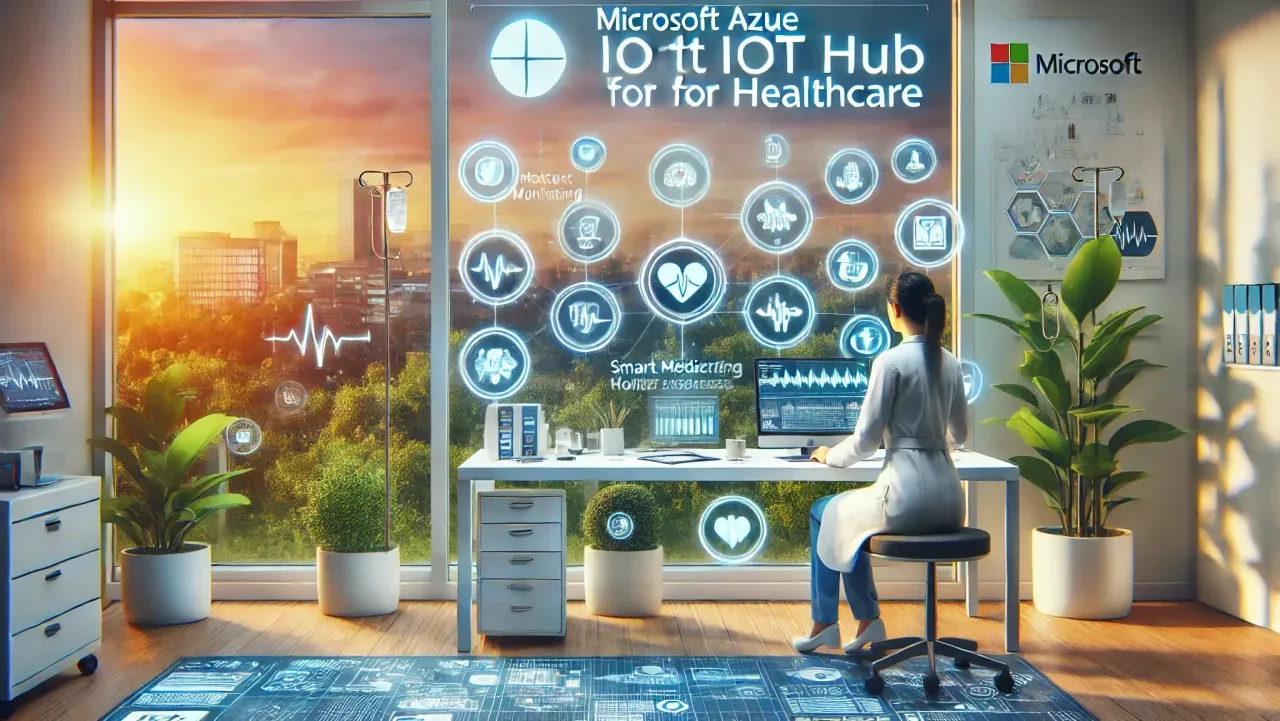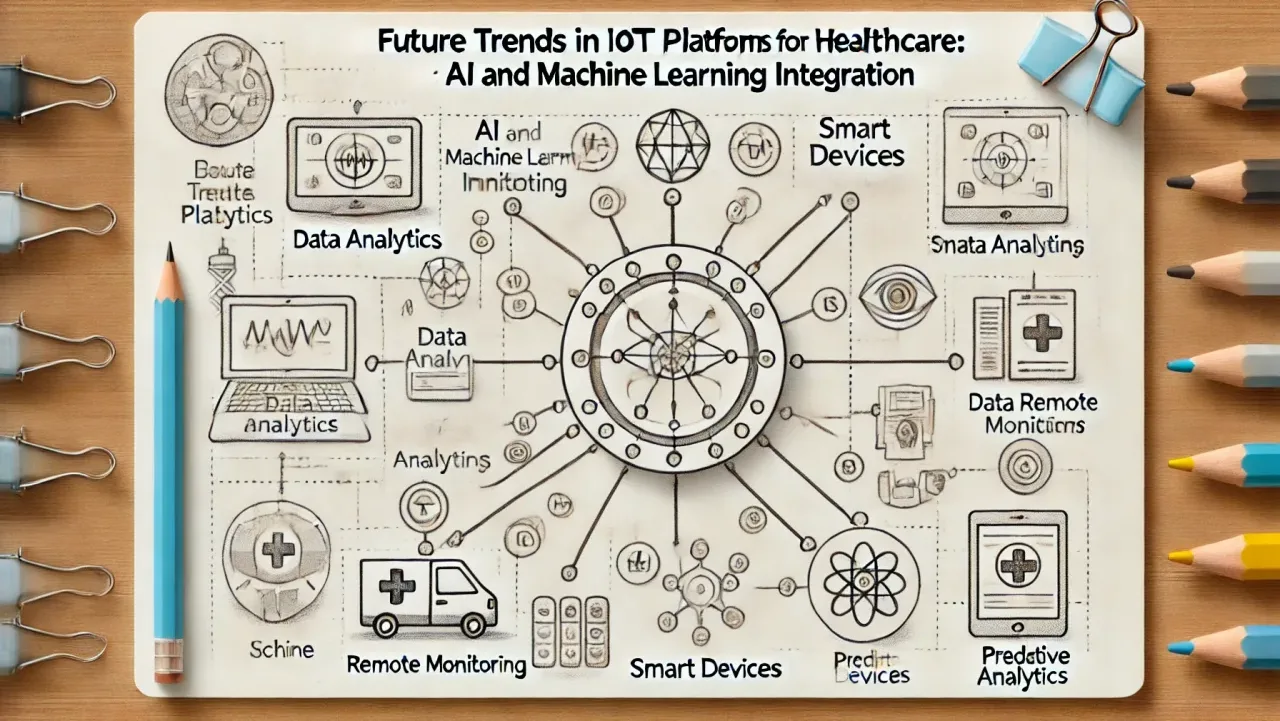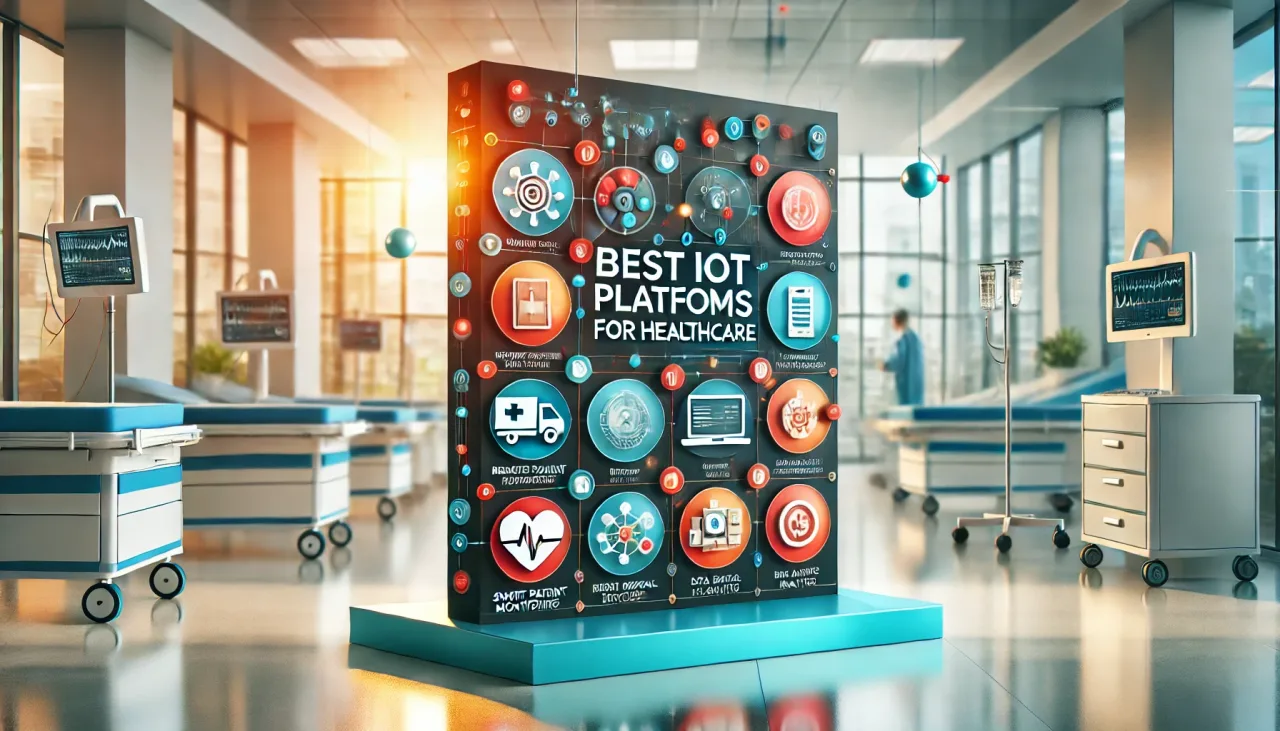In this Article
Introduction to Best IoT Platforms for Healthcare
The Internet of Things (IoT) is transforming the healthcare industry by enabling real-time data collection, remote patient monitoring, and advanced analytics. IoT platforms play a crucial role in managing the vast amounts of data generated by connected medical devices and ensuring secure, efficient communication between devices and healthcare applications. This detailed article will explore the best IoT platforms for healthcare in 2024, highlighting their key features, benefits, and use cases. By understanding the strengths of these platforms, healthcare providers can make informed decisions to enhance patient care and operational efficiency.
Understanding IoT Platforms for Healthcare
What are the best IoT Platforms for Healthcare?
An IoT platform for healthcare is an integrated suite of tools and services designed to manage connected medical devices and their data. These platforms provide the necessary infrastructure to connect, monitor, manage, and secure IoT devices, facilitating seamless communication and data exchange. Key functionalities include device management, data collection, data processing, security, and analytics.
Importance of Choosing the Right IoT Platform for Healthcare
- Improve Patient Outcomes: Enable remote patient monitoring and timely interventions through real-time data insights.
- Enhance Operational Efficiency: Streamline workflows and reduce costs through automation and predictive analytics.
- Ensure Data Security and Compliance: Protect sensitive patient data and comply with healthcare regulations such as HIPAA.
Best IoT Platforms for Healthcare: Top 5 Picks
1. AWS IoT Core for Healthcare
Overview of AWS IoT Core
AWS IoT Core is a managed cloud platform provided by Amazon Web Services. It allows connected devices to interact with cloud applications and other devices securely and reliably. AWS IoT Core supports billions of devices and trillions of messages, ensuring scalable and reliable connectivity.
Key Features of AWS IoT Core for Healthcare
- Device Management: AWS IoT Device Management makes it easy to onboard, organize, monitor, and remotely manage IoT devices at scale.
- Secure Communication: Ensures secure communication between devices and the cloud through TLS and mutual authentication.
- Real-Time Data Processing: AWS IoT Analytics enables real-time analysis of IoT data for actionable insights, critical for patient monitoring.
Use Cases for AWS IoT Core in Healthcare
- Remote Patient Monitoring: Managing and monitoring patient health data remotely to provide timely interventions.
- Telehealth Services: Enabling secure communication between patients and healthcare providers for virtual consultations.
- Healthcare Asset Management: Tracking and managing medical equipment to ensure availability and maintenance.
2. Microsoft Azure IoT Hub for Healthcare
Overview of Microsoft Azure IoT Hub

Ai Image by Dall-E
Microsoft Azure IoT Hub is a cloud platform that enables bi-directional communication between IoT applications and the devices they manage. It offers extensive security features and integration with other Azure services.
Key Features of Microsoft Azure IoT Hub for Healthcare
- Device Provisioning: Azure IoT Hub Device Provisioning Service simplifies the process of connecting and configuring medical devices securely.
- Edge Computing: Azure IoT Edge allows data processing and analytics at the edge, reducing latency and bandwidth usage.
- Integration: Seamless integration with other Azure services like Azure Machine Learning and Azure Stream Analytics for advanced healthcare analytics.
Use Cases for Microsoft Azure IoT Hub in Healthcare
- Chronic Disease Management: Monitoring and managing chronic diseases through continuous data collection and analysis.
- Hospital Operations: Enhancing hospital operations by optimizing workflows and resource management.
- Patient Engagement: Improving patient engagement through personalized health insights and remote health management.
3. Google Cloud IoT Core for Healthcare
Overview of Google Cloud IoT Core
Google Cloud IoT Core is a fully managed service that allows you to connect, manage, and ingest data from globally dispersed medical devices. It integrates with Google Cloud’s data analytics services to provide comprehensive healthcare IoT solutions.
Key Features of Google Cloud IoT Core for Healthcare
- Device Management: Supports large-scale deployment and management of medical devices with minimal effort.
- Real-Time Data Analysis: Integration with Google Cloud Pub/Sub, Dataflow, and BigQuery for real-time health data analysis.
- Security: Ensures device security through mutual authentication and secure communication, essential for protecting patient data.
Use Cases for Google Cloud IoT Core in Healthcare
- Precision Medicine: Analyzing genetic and health data to provide personalized treatment plans.
- Health Data Analytics: Aggregating and analyzing health data to improve patient outcomes and healthcare services.
- Wearable Health Devices: Managing data from wearable health devices to monitor patient health in real-time.
4. IBM Watson IoT Platform for Healthcare
Overview of IBM Watson IoT Platform
IBM Watson IoT Platform provides powerful capabilities for device management, data collection, and real-time analytics. It leverages IBM’s cognitive computing and machine learning technologies to offer advanced healthcare IoT solutions.
Key Features of IBM Watson IoT Platform for Healthcare
- AI and Machine Learning: Integrates with IBM Watson services to provide AI-driven health insights and automation.
- Device Connectivity: Supports a wide range of communication protocols for connecting medical devices.
- Advanced Analytics: Real-time analytics and visualization tools for monitoring and managing health data.
Use Cases for IBM Watson IoT Platform in Healthcare
- Predictive Analytics: Using predictive analytics to anticipate patient needs and prevent adverse health events.
- Smart Hospital Management: Enhancing hospital management through IoT-enabled smart systems and predictive maintenance.
- Virtual Health Assistants: Deploying virtual health assistants to provide patients with personalized health information and support.
5. Minnovation IoT Platform for Healthcare
Overview of Minnovation IoT Platform
Minnovation specializes in providing comprehensive IoT solutions tailored to the specific needs of businesses. Their IoT platform ensures seamless integration, robust security, and enhanced performance, making it an excellent choice for healthcare applications.
Key Features of Minnovation IoT Platform for Healthcare
- Custom Solutions: Tailored IoT solutions designed to meet specific business requirements, ensuring that the platform addresses unique healthcare challenges effectively.
- Robust Security: Advanced security features to protect patient data and ensure compliance with healthcare regulations, including end-to-end encryption and role-based access control.
- Scalable Architecture: Supports scalable deployments, allowing healthcare providers to expand their IoT networks as needed without compromising performance or security.
Use Cases for Minnovation IoT Platform in Healthcare
- Remote Patient Monitoring: Enabling continuous monitoring of patient health data, allowing healthcare providers to offer timely interventions and improve patient outcomes.
- Smart Hospital Management: Streamlining hospital operations through IoT-enabled smart systems, optimizing resource management, and enhancing operational efficiency.
- Telehealth Services: Facilitating secure and efficient telehealth services, providing patients with remote consultations and personalized care.
The Role of Security in IoT Platforms for Healthcare
Ensuring Data Privacy and Compliance
In healthcare, data privacy and compliance are paramount. IoT platforms must adhere to strict regulations such as HIPAA (Health Insurance Portability and Accountability Act) in the United States and GDPR (General Data Protection Regulation) in Europe. These regulations mandate the protection of patient data and ensure that healthcare providers implement robust security measures.
Key Security Features
- Encryption: Ensuring data is encrypted both in transit and at rest to protect it from unauthorized access.
- Authentication: Implementing strong authentication mechanisms to verify the identity of devices and users.
- Access Control: Using role-based access control to restrict data access based on user roles and permissions.
- Regular Security Audits: Conducting regular security audits and vulnerability assessments to identify and mitigate potential threats.
How IoT Platforms are Enhancing Telehealth Services
Remote Patient Monitoring
IoT platforms enable healthcare providers to monitor patients remotely, collecting real-time data on vital signs, medication adherence, and other health indicators. This allows for timely interventions and reduces the need for frequent hospital visits.
Virtual Consultations
By integrating IoT platforms with telehealth services, healthcare providers can conduct virtual consultations, providing care to patients regardless of their location. This is particularly beneficial for patients in remote areas or those with mobility issues.
Data-Driven Insights
IoT platforms facilitate the collection and analysis of vast amounts of health data. By leveraging advanced analytics and machine learning, healthcare providers can gain insights into patient health trends, predict potential health issues, and personalize treatment plans.
Future Trends in IoT Platforms for Healthcare
AI and Machine Learning Integration

Ai Image by Dall-E
The integration of AI and machine learning with IoT platforms is set to revolutionize healthcare. These technologies enable predictive analytics, automated decision-making, and personalized patient care.
Blockchain for Enhanced Security
Blockchain technology offers a decentralized and secure way to manage healthcare data. Integrating blockchain with IoT platforms can enhance data security, ensure data integrity, and improve patient trust.
Expansion of Wearable Devices
Wearable health devices are becoming increasingly popular, providing continuous health monitoring. IoT platforms that can seamlessly integrate and manage data from these devices will play a crucial role in the future of healthcare.
Conclusion
Choosing the right IoT platform is crucial for the success of IoT deployments in healthcare. The platforms listed above each offer unique features and capabilities tailored to various healthcare use cases. Understanding the strengths and applications of these platforms is key to making informed decisions that drive innovation and achieve healthcare objectives. By leveraging the capabilities of these IoT platforms, healthcare providers can optimize their IoT strategies, improve patient care, and facilitate the development of innovative health solutions.
How We Can Help
At Minnovation, we specialize in providing comprehensive IoT solutions tailored to meet the unique needs of your healthcare business. Our expertise in various IoT platforms ensures seamless integration, robust security, and enhanced performance. We offer consultation, development, and management services to help you harness the full potential of IoT technology. Whether you are looking to implement a new IoT system or optimize your existing infrastructure, our team is here to support you every step of the way. For more details visit our official site or Contact us.
Reference
Related Blog Posts
How Smart Cities Connect: Getting Started with Edge AI and IoT Technology
How to Get Started with Edge AI and IoT Technologies in Smart Cities: Overcoming Integration Challenges In recent years, the concept of smart cities has evolved from a futuristic Read More
5 Step Strategy: Ensuring Security and Privacy in 15-Minute Smart Cities
Introduction Ensuring security and privacy in 15-minute smart cities is a critical challenge as urban areas become increasingly connected through IoT and edge AI technologies. These cities aim to Read More
What is a smart city and the challenge of legacy systems
How to Get Started with Integrating Legacy Systems in Smart Cities Smart cities are transforming urban landscapes by leveraging technology to improve the quality of life for residents. However, Read More




